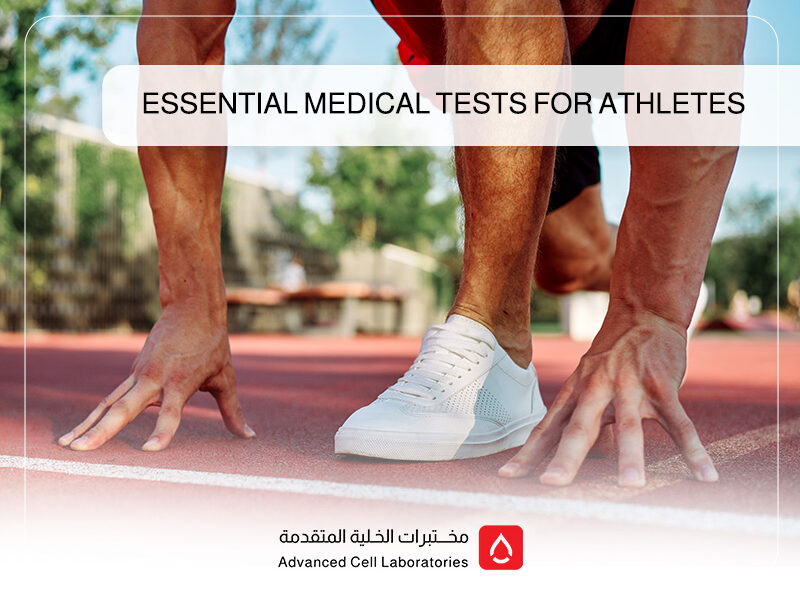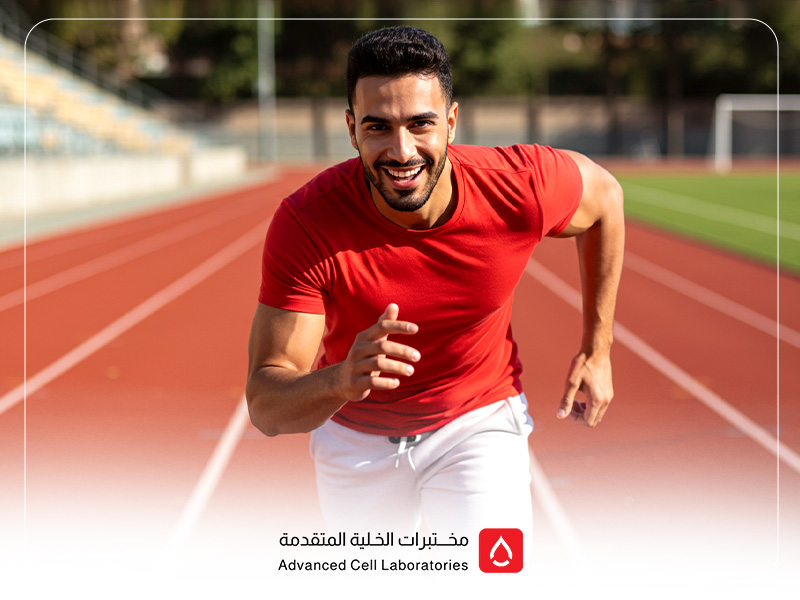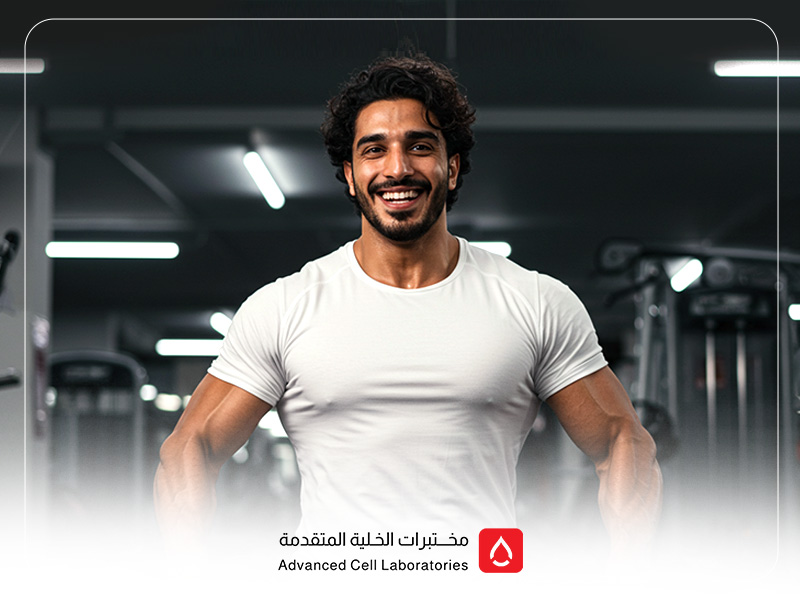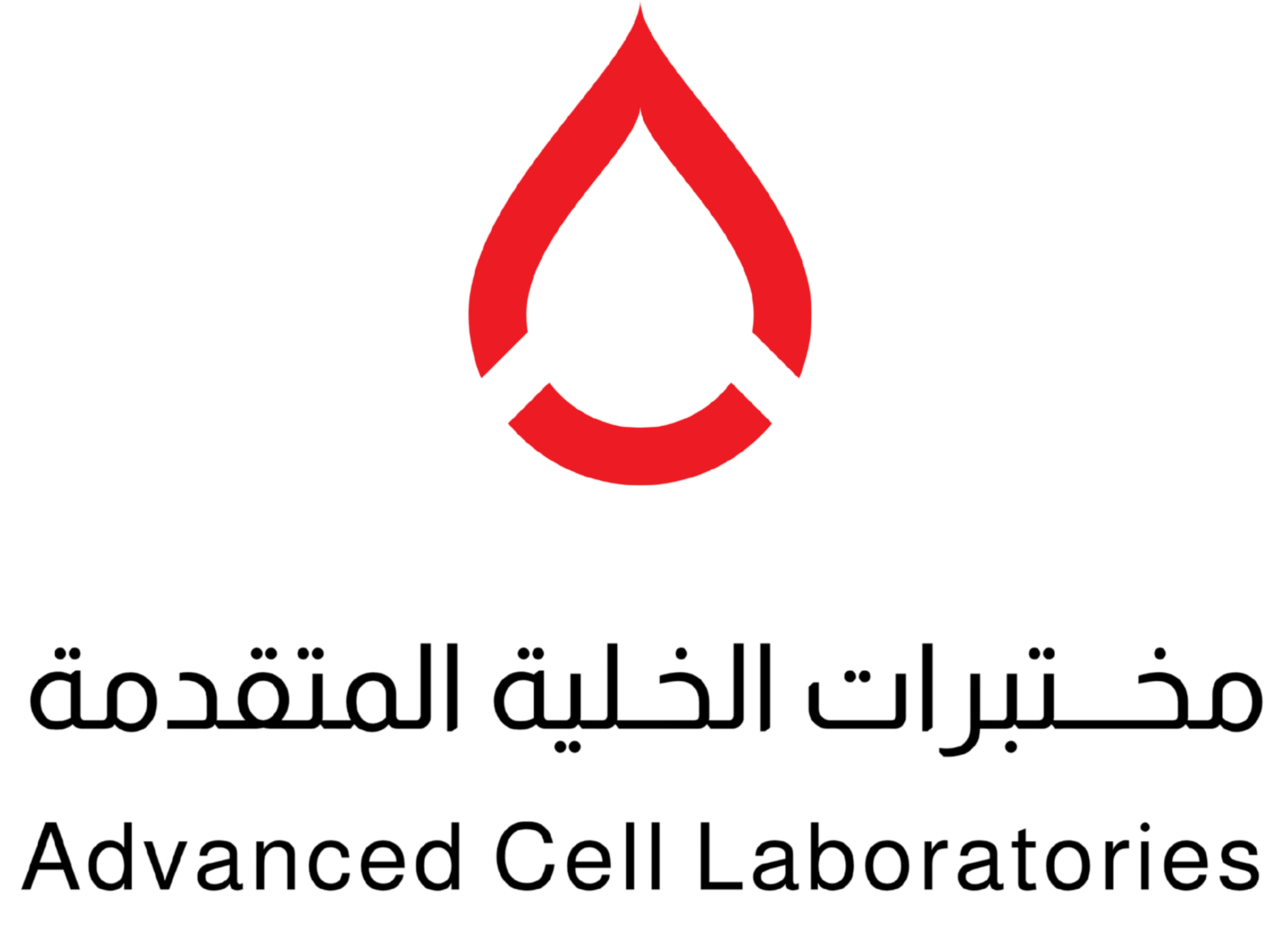
!Medical testing plays a vital role in the lives of athletes, whether professional or amateur. Regular health assessments through the most important medical tests for athletes help improve performance, reduce the risk of injuries, and ensure optimal results in training and competitions.
Why do athletes need regular tests?

Athletes require careful monitoring of their body functions, as intense physical activity directly affects body systems. Regular tests help to:
- Detect any health issues early.
- Assess the efficiency of different body systems.
- Adjust diet and supplements according to actual needs.
- Prevent muscle fatigue and chronic exhaustion.
What is the difference between athlete and non-athlete tests?
Athlete tests focus on assessing muscle function, hormonal balance, levels of minerals and vitamins, and heart and vascular health, while non-athlete tests focus only on general indicators. Therefore, they differ in detail, intensity, and frequency.
Complete Blood Count (CBC)
The CBC test is one of the most important medical tests for athletes, as it provides a comprehensive view of:
- Red and white blood cell counts.
- Hemoglobin levels.
- Indicators of anemia or infections.
Hemoglobin and Iron Tests
Hemoglobin is essential for transporting oxygen to the muscles, and iron testing helps detect anemia or low oxygen levels, which is common among some athletes.
Calcium and Vitamin D Tests
Calcium and Vitamin D are crucial for bone and muscle health. Deficiency in either increases the risk of fractures or muscle cramps.
Muscle Enzyme Tests (CPK)
This test measures the level of CPK enzyme, which rises when muscle tissue is damaged. It helps to:
- Assess muscle fatigue.
- Determine how well muscles recover after exercise.
Liver and Kidney Function Tests
These tests help to:
- Ensure the body can detoxify efficiently.
- Monitor the impact of dietary supplements on the body.
Blood Glucose Tests at Rest and After Exercise
Glucose testing during rest and post-exercise helps to:
- Understand the body’s response to exercise.
- Adjust meal timing and carbohydrate intake.
Hormone Tests for Athletes
Athletes, especially those practicing strength, endurance, or bodybuilding sports, need precise hormone monitoring to ensure optimal performance and avoid fatigue or injuries. Hormone tests not only reveal the body’s internal balance but also help improve training and nutrition plans. Here are the main hormones to test and the meaning of their indicators:
Testosterone
- The primary male hormone responsible for building muscle mass and increasing strength.
- Low levels lead to poor performance, decreased libido, and chronic fatigue.
Free Testosterone
- The active form of testosterone, most accurate for assessing muscle effects.
- Very important for bodybuilding and male athletes.
LH (Luteinizing Hormone)
- Regulates testosterone production.
- Low levels may indicate a dysfunction in the hypothalamic-pituitary-testicular (HPT) axis.
FSH (Follicle Stimulating Hormone)
- Responsible for sperm production and testicular function regulation.
- Tested to determine the cause of low testosterone or fertility issues.
Cortisol
- The stress hormone, rises with overtraining or lack of sleep.
- Chronic elevation leads to muscle breakdown and delayed recovery.
DHEA-S (Dehydroepiandrosterone Sulfate)

- Hormone derived into testosterone and estrogen.
- Used as a general indicator of hormonal health and energy.
TSH (Thyroid Stimulating Hormone)
- Stimulates thyroid function.
- Important for thyroid performance, controlling metabolism and fat burning.
T3 and T4 (Triiodothyronine & Thyroxine)
- Actual thyroid hormones.
- Low levels cause slow metabolism, fat gain, and performance decline.
Prolactin
- High levels may reduce testosterone and focus.
- Tested if fatigue, low libido, or poor performance appear.
IGF-1 (Insulin-like Growth Factor 1)
- Indicator of Growth Hormone (GH), plays a key role in muscle building and cell regeneration.
- Low levels may indicate weak GH production or poor nutrition.
Urine and Electrolytes Tests
Urine testing evaluates hydration and kidney health, while electrolyte tests (sodium, potassium, magnesium) help understand body’s electrical balance.
Triglycerides and Cholesterol Tests
Even athletes are at risk of lipid disorders, especially with unbalanced diets. These tests help:
- Prevent heart diseases.
- Perfectly adjust diet.
Physical Performance and Endurance Tests
Include tests like:
- Cardiac stress test.
- VO2 Max analysis.
- Heart rate monitoring during exercise.
Essential to understand physical performance efficiency.
How often should tests be repeated?
- Every 3 to 6 months for professional athletes.
- Once or twice a year for amateur athletes.
- After intensive training or competitions.
Tips for athletes after test results
- Consult a sports nutrition specialist to adjust your diet.
- Do not ignore any abnormal indicators.
- Follow up regularly to monitor improvement.
- Ensure adequate water intake.
Frequently Asked Questions about Athletic Tests
Do you need to fast before the tests?
Yes, especially for sugar and lipid tests.
Do tests vary by sport type?
Yes, depending on muscle load and nutrition.
Do supplements affect test results?
Some may, so inform the lab of any supplements you are taking.
Regularly performing the most important medical tests for athletes is the key to success and prevention. Contact “Advanced Cell Labs” now to book a customized athletes’ test package and start your path to better performance and stronger health.
Call us now or book online!

